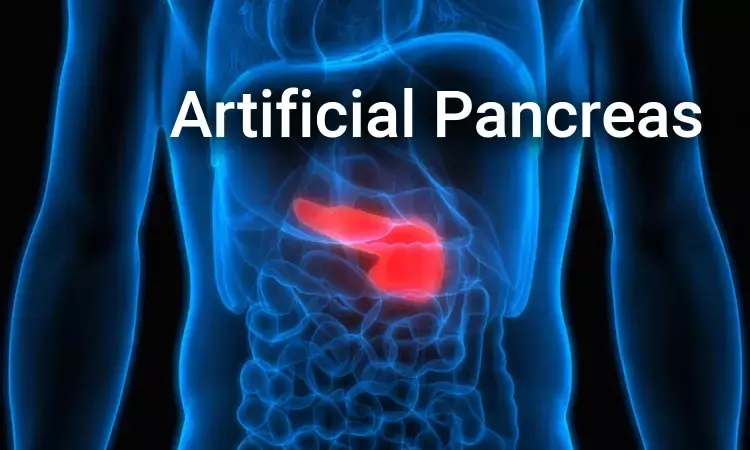- Home
- Medical news & Guidelines
- Anesthesiology
- Cardiology and CTVS
- Critical Care
- Dentistry
- Dermatology
- Diabetes and Endocrinology
- ENT
- Gastroenterology
- Medicine
- Nephrology
- Neurology
- Obstretics-Gynaecology
- Oncology
- Ophthalmology
- Orthopaedics
- Pediatrics-Neonatology
- Psychiatry
- Pulmonology
- Radiology
- Surgery
- Urology
- Laboratory Medicine
- Diet
- Nursing
- Paramedical
- Physiotherapy
- Health news
- Fact Check
- Bone Health Fact Check
- Brain Health Fact Check
- Cancer Related Fact Check
- Child Care Fact Check
- Dental and oral health fact check
- Diabetes and metabolic health fact check
- Diet and Nutrition Fact Check
- Eye and ENT Care Fact Check
- Fitness fact check
- Gut health fact check
- Heart health fact check
- Kidney health fact check
- Medical education fact check
- Men's health fact check
- Respiratory fact check
- Skin and hair care fact check
- Vaccine and Immunization fact check
- Women's health fact check
- AYUSH
- State News
- Andaman and Nicobar Islands
- Andhra Pradesh
- Arunachal Pradesh
- Assam
- Bihar
- Chandigarh
- Chattisgarh
- Dadra and Nagar Haveli
- Daman and Diu
- Delhi
- Goa
- Gujarat
- Haryana
- Himachal Pradesh
- Jammu & Kashmir
- Jharkhand
- Karnataka
- Kerala
- Ladakh
- Lakshadweep
- Madhya Pradesh
- Maharashtra
- Manipur
- Meghalaya
- Mizoram
- Nagaland
- Odisha
- Puducherry
- Punjab
- Rajasthan
- Sikkim
- Tamil Nadu
- Telangana
- Tripura
- Uttar Pradesh
- Uttrakhand
- West Bengal
- Medical Education
- Industry
New dual-hormone artificial pancreas leads to better blood sugar control in type 1 diabetes

A novel dual-hormone artificial pancreas system developed by researchers leads to better blood sugar control compared with a rapid insulin-alone artificial pancreas.
The rapid insulin-alone artificial pancreas improves blood sugar control in type 1 diabetes but daytime control remains suboptimal. Researchers have proposed two novel dual-hormone artificial pancreas systems to overcome this problem.
Researchers from McGill University's Faculty of Medicine have developed a novel dual-hormone artificial pancreas system that improves blood sugar control compared with a rapid insulin-alone artificial pancreas. The findings of the research have appeared in Diabetes Care.
Dr Ahmad Haidar and his research team have combined pramlintide with insulin as part of an automated insulin delivery system. The researchers proposed a dual-hormone approach in order to build on current findings from insulin-only artificial pancreas trials. Dr Haidar and his team also tested a rapid system and a regular system.
Pramlintide is a synthetic form of the hormone amylin. This hormone works to reduce post-meal blood sugar levels by inhibiting the action of the glucose-raising hormone glucagon.
The researchers conducted a randomized crossover trial comparing a rapid insulin-alone artificial pancreas with rapid insulin-and-pramlintide and with regular insulin-and-pramlintide artificial pancreas systems in adults with type 1 diabetes. The participants were assigned to the interventions in random order during three 24-h inpatient visits. Each visit was preceded by an outpatient hormonal open-loop run-in period of 10–14 days. The dual-hormone artificial pancreas delivered pramlintide in a basal-bolus manner, using a novel dosing algorithm, with a fixed ratio relative to insulin. The primary outcome was a time in the range of 3.9–10.0 mmol/L.
The investigators found that those on both insulin and pramlintide reported a high level of satisfaction and better quality of life. Pramlintide slowed down meal absorption, giving insulin more time to work. As a result, patients using the combination of hormones experienced a significant improvement in the time spent within the target blood glucose range.
They concluded: "Compared with the rapid insulin-alone artificial pancreas system, the rapid insulin-and-pramlintide system increased the time in a range from 74% to 84%, whereas the regular insulin-and-pramlintide system did not change the time in range."A novel rapid insulin-and-pramlintide artificial pancreas leads to better blood sugar control compared with a rapid insulin-alone artificial pancreas.
For further reference log on to:https://doi.org/10.2337/dc19-1922
Dr Kamal Kant Kohli-MBBS, DTCD- a chest specialist with more than 30 years of practice and a flair for writing clinical articles, Dr Kamal Kant Kohli joined Medical Dialogues as a Chief Editor of Medical News. Besides writing articles, as an editor, he proofreads and verifies all the medical content published on Medical Dialogues including those coming from journals, studies,medical conferences,guidelines etc. Email: drkohli@medicaldialogues.in. Contact no. 011-43720751


